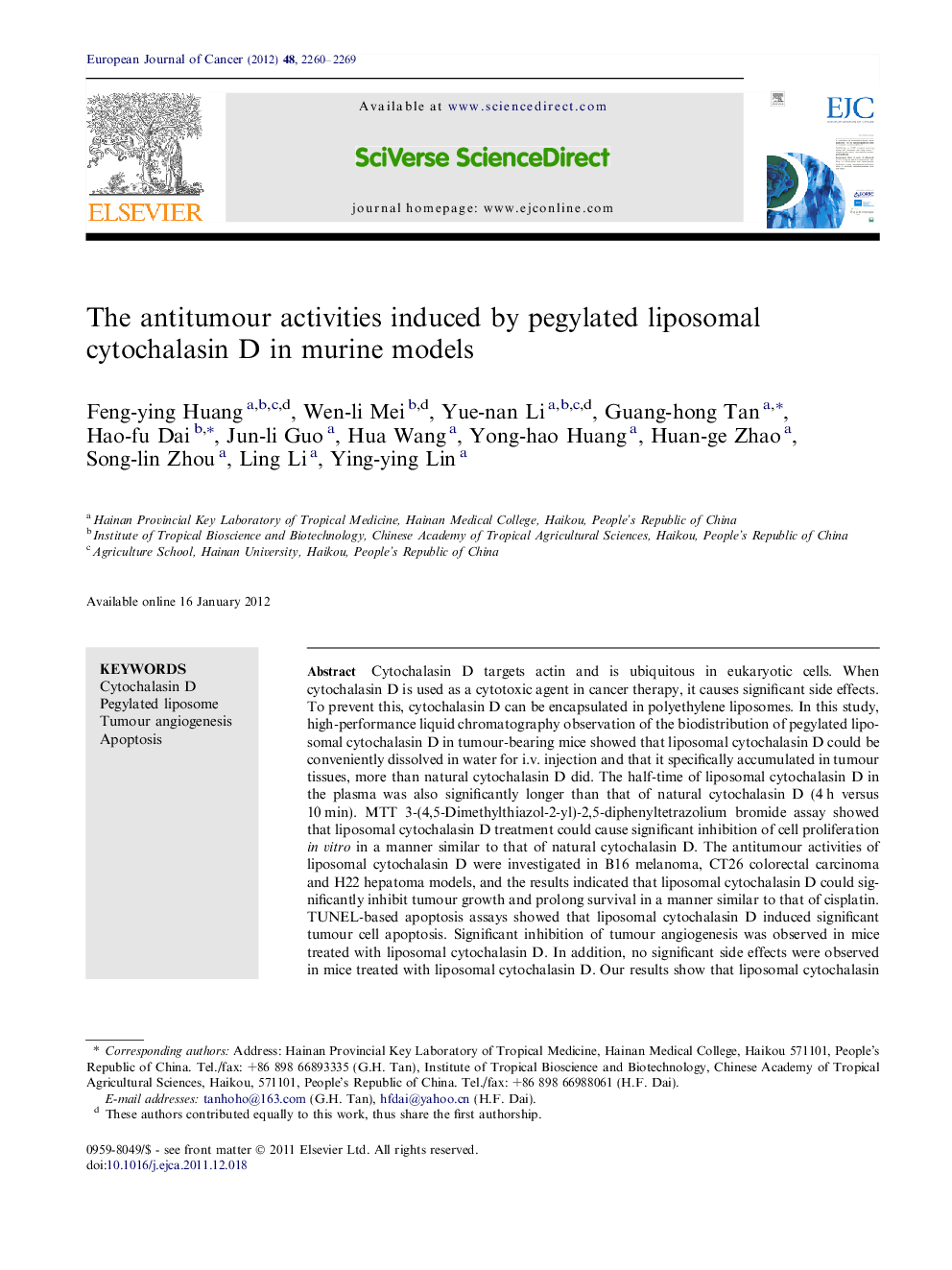| Article ID | Journal | Published Year | Pages | File Type |
|---|---|---|---|---|
| 8446015 | European Journal of Cancer | 2012 | 10 Pages |
Abstract
Cytochalasin D targets actin and is ubiquitous in eukaryotic cells. When cytochalasin D is used as a cytotoxic agent in cancer therapy, it causes significant side effects. To prevent this, cytochalasin D can be encapsulated in polyethylene liposomes. In this study, high-performance liquid chromatography observation of the biodistribution of pegylated liposomal cytochalasin D in tumour-bearing mice showed that liposomal cytochalasin D could be conveniently dissolved in water for i.v. injection and that it specifically accumulated in tumour tissues, more than natural cytochalasin D did. The half-time of liposomal cytochalasin D in the plasma was also significantly longer than that of natural cytochalasin D (4Â h versus 10Â min). MTT 3-(4,5-Dimethylthiazol-2-yl)-2,5-diphenyltetrazolium bromide assay showed that liposomal cytochalasin D treatment could cause significant inhibition of cell proliferation in vitro in a manner similar to that of natural cytochalasin D. The antitumour activities of liposomal cytochalasin D were investigated in B16 melanoma, CT26 colorectal carcinoma and H22 hepatoma models, and the results indicated that liposomal cytochalasin D could significantly inhibit tumour growth and prolong survival in a manner similar to that of cisplatin. TUNEL-based apoptosis assays showed that liposomal cytochalasin D induced significant tumour cell apoptosis. Significant inhibition of tumour angiogenesis was observed in mice treated with liposomal cytochalasin D. In addition, no significant side effects were observed in mice treated with liposomal cytochalasin D. Our results show that liposomal cytochalasin D increases solubility and bioavailability, a lower incidence of side effects and improves antitumour effects, indicating its potential as a chemical agent for cancer therapy.
Related Topics
Life Sciences
Biochemistry, Genetics and Molecular Biology
Cancer Research
Authors
Feng-ying Huang, Wen-li Mei, Yue-nan Li, Guang-hong Tan, Hao-fu Dai, Jun-li Guo, Hua Wang, Yong-hao Huang, Huan-ge Zhao, Song-lin Zhou, Ling Li, Ying-ying Lin,
